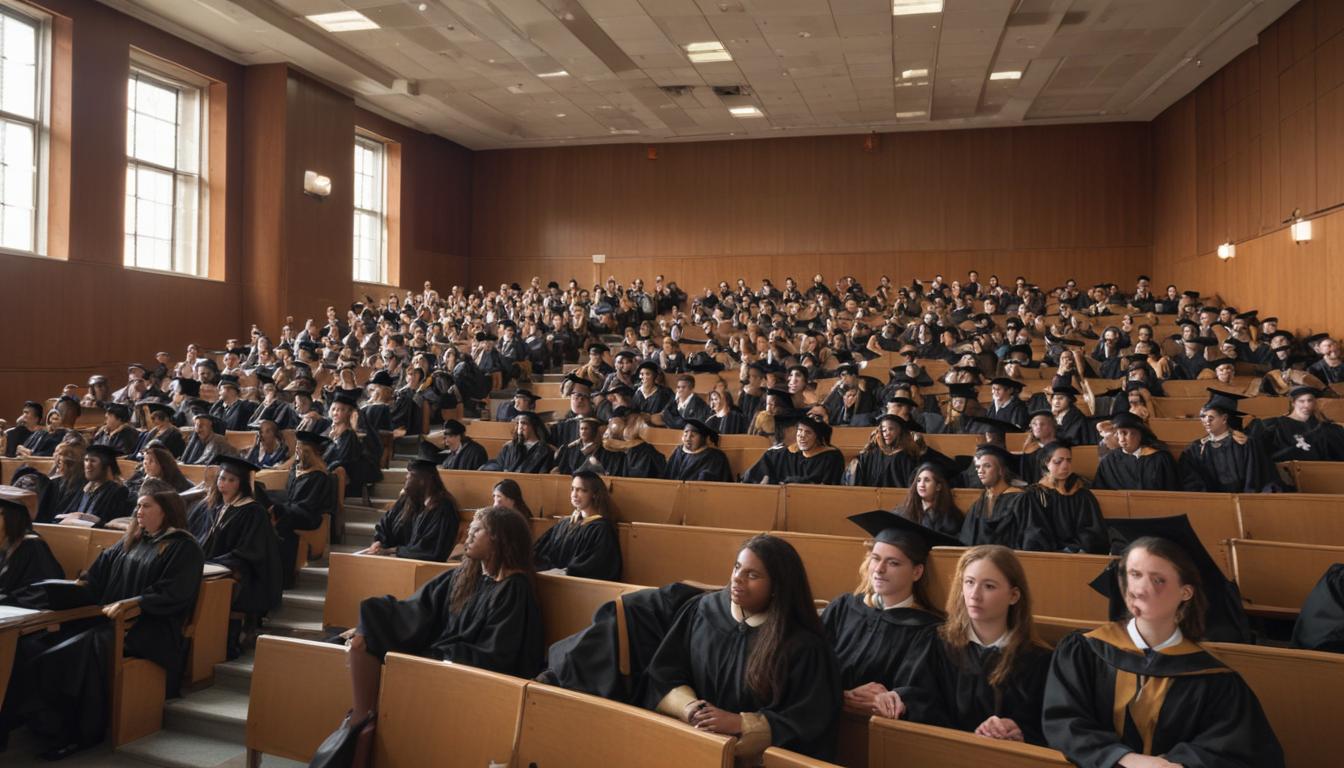Now Reading: Reinventing Higher Education
-
01
Reinventing Higher Education
Reinventing Higher Education

The Future of Higher Education Navigating the Shift from Campus to Cloud
Are you staring at the rising cost of tuition and wondering if a traditional four-year degree is still the golden ticket to a successful career? You’re not alone. For decades, the path was clear, but today, students, parents, and even employers are questioning the value of an expensive, time-consuming education that can feel disconnected from the real world. The anxiety is real, and the uncertainty about the return on investment can be paralyzing. It feels like the old map to success is outdated, leaving you to navigate a new and unfamiliar landscape on your own.
But what if this uncertainty wasn’t a crisis, but an opportunity? The foundation of higher education isn’t crumbling; it’s being renovated from the ground up. A quiet revolution is underway, transforming rigid, outdated models into dynamic, personalized, and skill-focused experiences. The future of higher education is not about abandoning learning, but about embracing new ways to access it. This evolution promises a system that is more affordable, more flexible, and more aligned with the demands of the modern workforce, offering a clearer, more relevant path forward for learners of all ages.
The Rise of Personalized and Flexible Learning Paths
The one-size-fits-all model of higher education, defined by a four-year residency on a physical campus, is rapidly becoming a relic of the past. The future is flexible. This shift is powered by technology that allows for hybrid models and fully online degree programs that offer more than just convenience. They offer true personalization. Instead of being a passive recipient in a crowded lecture hall, the modern student can engage with material at their own pace, on their own schedule, and from anywhere in the world. This democratization of education opens the doors for working adults, parents, and individuals in remote locations who were previously excluded from the traditional university experience.
Furthermore, this personalization goes beyond just scheduling. Advanced platforms are increasingly using AI and data analytics to create adaptive learning journeys. These systems can identify a student’s strengths and weaknesses, offering supplemental materials for challenging topics or allowing them to test out of subjects they have already mastered. This transforms education from a standardized product into a tailored service. The focus shifts from simply completing credit hours to ensuring genuine comprehension and skill acquisition, making the learning process more efficient, engaging, and ultimately more effective for the individual student.

Bridging the Gap Skills-First Education for the Modern Workforce
For years, a significant disconnect has existed between the theoretical knowledge taught in universities and the practical skills demanded by employers. The future of higher education directly confronts this “skills gap” by reorienting the curriculum toward real-world application. Instead of focusing solely on academic theory, progressive institutions are integrating project-based learning, simulations, and mandatory internships directly into their core programs. The goal is to produce graduates who not only understand the “why” but are experts in the “how,” ready to contribute value from day one on the job.
This evolution is fueled by unprecedented collaboration between academia and industry. Companies are no longer waiting for graduates to appear; they are actively partnering with universities to help design courses and programs that cultivate the exact competencies they need. This results in curricula focused on high-demand areas like data science, cybersecurity, digital marketing, and sustainable engineering. Students benefit by gaining tangible, job-ready skills that make their resumes stand out, while employers gain a pipeline of talent that is perfectly aligned with their operational needs. This symbiotic relationship ensures that a degree is not just a piece of paper, but a true indicator of professional capability.
The Power of Micro-credentials and Lifelong Learning
Flowing directly from the demand for specific skills is the explosion of micro-credentials. These are smaller, highly focused certifications that validate proficiency in a particular tool, methodology, or skill set, such as a Google Analytics certification or an Amazon Web Services cloud practitioner credential. They are not designed to replace degrees, but to augment them. A student can stack several micro-credentials alongside their bachelor’s degree to create a uniquely powerful and specialized profile that demonstrates both broad knowledge and specific, in-demand expertise.
This trend is a core component of a larger shift toward lifelong learning. In a world where technology and industries evolve at a breakneck pace, the idea that education ends at age 22 is obsolete. The future belongs to those who continuously adapt and upskill throughout their careers. Micro-credentials, online certificates, and professional development courses provide the agile and affordable framework for this ongoing educational journey. This model empowers individuals to pivot their careers, stay relevant in their fields, and embrace learning not as a one-time event, but as an integral and continuous part of their professional lives.





































